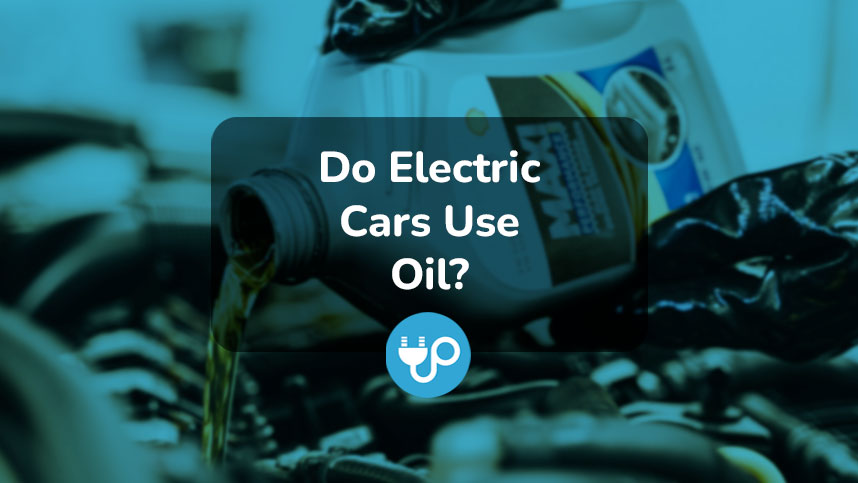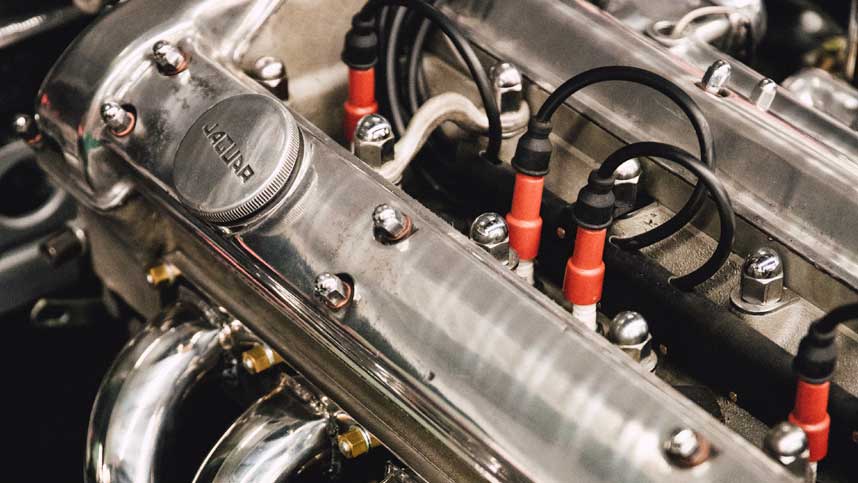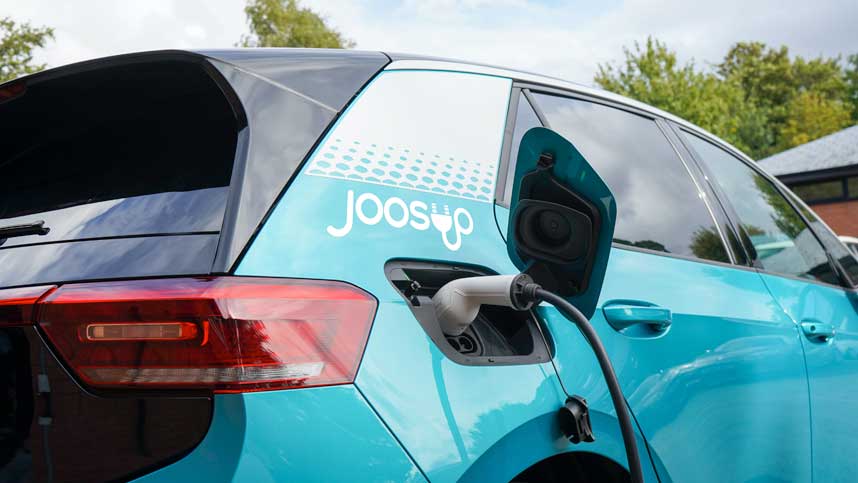
Do Electric Cars Use Oil?
In recent times, big changes have been happening in the world of transportation, thanks to electric vehicles (EVs).
These cars promise to be better for the environment and use less fossil fuels.
As more people get interested in electric cars, they often wonder how they work and what they need to run.
One common question is do electric cars use oil like regular cars do?
In this article, we will explore this question and find out how electric cars relate to oil.
We will also learn about the fluids and special oils that electric cars need to function properly.
Additionally, we'll look at how the rise of electric cars could affect the oil industry and what it means for the future of transportation.
By the end of this article, you'll have a better understanding of how electric cars fit into the bigger picture of energy and sustainability.
Chapters
Do Electric Cars Use Oil?
Electric cars stand out because they don't depend on the typical internal combustion engines found in regular vehicles.
These traditional engines require oil to keep their parts running smoothly and prevent overheating.
However, electric cars are quite different in this aspect.
Electric cars are powered by electric motors.
These motors use electricity to generate power and move the vehicle.
Unlike internal combustion engines, electric motors have fewer moving parts and generate much less heat.
This means that they don't require the same kind of lubrication and cooling that traditional engines do.
In a traditional car, engine oil is crucial because it helps reduce friction between the moving parts and dissipates the heat generated during combustion.
Without proper lubrication, the engine's parts would wear down quickly, leading to inefficiency and potential damage.
In contrast, electric motors have a simpler design with fewer parts that require lubrication.
This is why electric cars do not need engine oil.
Instead, they might need other types of fluids and lubricants for their different components.
So, if you're driving an electric car, you won't have to worry about changing engine oil as you would with a petrol-powered vehicle.
This is one of the advantages of electric cars when it comes to maintenance and sustainability.
What Fluids Do Electric Cars Need?
Even though electric cars don't need engine oil, it doesn't mean they are completely fluid-free.
They still rely on a few essential fluids to operate efficiently and safely.
Coolant
Coolant is a critical fluid in electric cars.
It plays a vital role in regulating the temperature of the electric motor and the battery.
Just like any other machinery that generates power, electric motors can get hot during operation.
Overheating can lead to inefficiency and potential damage.
Coolant helps dissipate this heat, ensuring that the motor and battery operate within safe temperature ranges.
This is particularly crucial for maintaining the long-term health and performance of the electric vehicle's components.
Brake Fluid
Brake fluid is another essential fluid in electric cars.
While electric cars use regenerative braking systems that capture energy to recharge the battery, they still need traditional braking mechanisms for sudden stops and emergency situations.
Brake fluid is necessary to transfer the force from the brake pedal to the brake pads, allowing the vehicle to slow down or stop.
Just like conventional cars, brake fluid ensures that the braking system functions effectively and safely.
Transmission Fluid
Some electric cars also use transmission fluid for their transmissions, even though electric motors don't require traditional transmissions like internal combustion engines.
Transmission fluid helps in cooling and lubricating the components in the transmission system, ensuring smooth operation.
It's important to note that the fluid requirements of electric cars can vary depending on the manufacturer and the specific design of the vehicle.
Therefore, it's always a good idea to refer to the manufacturer's guidelines and recommendations for proper maintenance.
So, while electric cars don't need engine oil, they do rely on other fluids to keep their components running smoothly and safely.
These fluids play a crucial role in ensuring the optimal performance and longevity of electric vehicles.
What Lubricants Do Electric Cars Need?
Even though electric cars operate differently from their gasoline-powered counterparts, they still rely on lubrication to ensure smooth and efficient functioning of various components.
While they don't have internal combustion engines that require engine oil, electric cars do have moving parts that need proper lubrication to minimise friction, wear, and heat generation.
Electric vehicle manufacturers recommend using specific lubricants for components like bearings and gears.
These lubricants are specially formulated to meet the unique needs of electric vehicles, taking into consideration factors like high torque at low speeds and the absence of the continuous high-temperature conditions found in traditional internal combustion engines.
Bearings
Bearings are an integral part of any vehicle, electric or conventional.
They support the rotation of wheels, motor shafts, and other moving parts.
Lubricants for electric vehicle bearings are designed to withstand the high loads and pressures generated during operation.
They help reduce friction between moving surfaces, preventing metal-to-metal contact and subsequent wear.
Gears
Gears are another area that requires proper lubrication.
In electric cars, gears are used in the transmission system to adjust power delivery from the electric motor to the wheels.
Lubricants used in electric vehicle transmissions ensure that gears mesh smoothly, reducing friction, heat, and noise.
This ultimately contributes to the overall efficiency and performance of the vehicle.
While electric cars don't need oil for their engines, they still require specific lubricants for critical components.
These lubricants are carefully formulated to address the unique demands of electric vehicles, including high torque, varying speeds, and distinct temperature conditions.
By using the right lubricants, electric car owners can help extend the life of their vehicles and maintain their optimal performance.
Just like with any vehicle, regular maintenance and adhering to the manufacturer's recommendations for lubricant types and change intervals are key to ensuring the longevity and efficiency of an electric car.
The Future of Electric Cars & Oil
The automotive landscape is undergoing a transformation as the world seeks more sustainable energy sources, and electric cars are at the forefront of this shift.
While electric vehicles currently constitute a relatively small portion of the global automotive market, their popularity is poised to surge in the coming years due to environmental concerns and advancements in technology, with the UK banning the sale of petrol and diesel powered cars and vans by 2035.
This growing popularity of electric cars has the potential to reshape the demand for traditional oil products.
Unlike conventional petrol-powered vehicles that heavily rely on fossil fuels, electric cars primarily draw power from electricity, which can be generated from renewable sources like solar and wind.
As more drivers embrace electric cars, the demand for petrol and diesel could experience a decline, thereby affecting the dynamics of the oil industry.
It's worth noting that the impact of electric cars on the oil industry is multifaceted.
On one hand, reduced petroleum demand could lead to changes in oil pricing and production.
However, the oil industry is not solely dependent on the automotive sector.
Oil is a crucial raw material for various industries, including petrochemicals, plastics, and manufacturing.
These sectors rely on oil for the production of plastics, chemicals, and other materials essential to modern life.
Moreover, electric cars don't entirely eliminate the need for oil-related products.
Lubricants, as discussed earlier, remain essential for the proper functioning of electric vehicle components.
Additionally, electric car batteries, which are a critical component, often require coolants and thermal management systems to maintain optimal temperature conditions, especially during charging and operation.
These coolants and systems can have oil-based components.
As electric cars continue to gain momentum, there's a growing emphasis on the entire ecosystem that supports them.
This includes charging infrastructure, battery recycling, and renewable energy sources.
The transition to electric vehicles goes beyond the cars themselves and encompasses the broader energy and transportation landscape.
Conclusion
Electric cars do not use oil in the same way that traditional petrol-powered vehicles do.
The absence of internal combustion engines in electric cars eliminates the need for engine oil.
However, electric vehicles still require fluids like coolant and brake fluid to operate efficiently.
Additionally, lubricants are necessary for certain components to reduce friction and ensure smooth operation.
The shift toward electric cars represents a transformative moment in the automotive industry, with the potential to reshape the relationship between vehicles and oil.
While the demand for gasoline might decrease with the rise of electric vehicles, the overall impact on the oil industry is complex and multifaceted.
As we continue to embrace electric cars for their environmental benefits, it's crucial to understand how they function and the role they play in reducing our reliance on traditional oil resources.
Blog Archive
- Electric Car Maintenance and Servicing Guide
- How Often Should I Charge My Electric Car?
- How to Check EV Battery Health
- Do Electric Cars Pay Road Tax?
- October 2024 Budget: Key EV News
- EV vs ICE – Which is Best?
- Should I Charge My EV to 80 or 90 or 100%?
- UK Government Announces Hybrid Sales Allowed Until 2035
- BEV vs PHEV – What’s the Difference?
- Definitely Not A Guru (Jim Starling) Reviews Joosup
- How Long Do Electric Car Batteries Last?
- 25 New Electric Car Brands on UK Roads
- General Election 2024: Major Party Net Zero Policies Compared
- Electric Car Service Costs vs ICE
- CHAdeMO vs CCS – What’s the Difference?
- Mr EV Reviews Joosup
- What is the ZEV Mandate?
- Spring 2024 Budget: No VAT Rate Cut on Public EV Charging
- What is Regenerative Braking?
- Joosup Powers Up Inaugural Everything Electric Show




